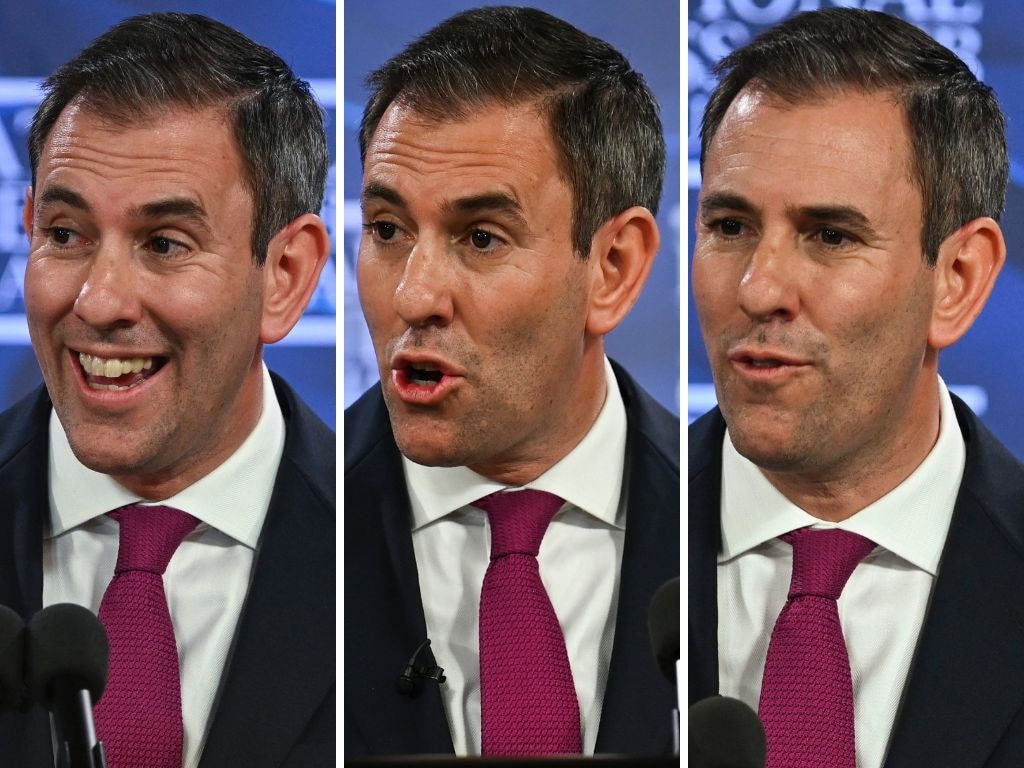Treasury secretary fails to back Labor’s $1bn bet on solar panels
Treasury secretary Steven Kennedy has failed to back the Albanese government’s $1bn commitment to creating a local solar panel manufacturing industry.

Treasury secretary Steven Kennedy has failed to back the Albanese government’s $1bn commitment to creating a local solar panel manufacturing industry, saying there were risks around how Labor’s Future Made in Australia Act was implemented and that the nation had “benefited enormously” from cheap Chinese-made panels.
Following his traditional post-budget speech to the Australian Business Economists, Dr Kennedy said there were “substantial opportunities” to be grasped through the yet-to-be-released Made in Australia legislation, but in response to a question distanced himself from the signature Solar SunShot project, which has attracted criticism from a range of experts.
“We do have to respond (to massive industrial policies in the US and Europe) and provide some incentives where we don’t think incentives are right, or we don’t think the path of adjustment will be optimal,” he said.
“But the risk arises in how policies are put in place to respond to those opportunities. And part of the reason we put together the framework to guide decision making was to try and be clear where Australia can sometimes benefit from the massive subsidies that have been put in place all around the world. And we made the point in the (national interest framework) paper that Australia has benefited enormously through the use, for example, of Chinese solar panels that have underpinned the massive implementation of renewable energy in Australia.”
Former Productivity Commission chairman Gary Banks recently said that the investment, alongside a similar-sized commitment to a world-first quantum computer in Brisbane would have failed Treasury’s “national interest framework” released with the May 14 budget.
After Energy Minister Chris Bowen recently said Labor’s decision to give energy subsidies to every household was designed to make it easier for the Reserve Bank to cut rates this year, Dr Kennedy said it wasn’t the job of the budget to manage the ups and downs in the economy.
Dr Kennedy said “fiscal policy can play an important stabilising role when large swings are running through the economy. However, active fiscal policy is not well suited to fine-tuning growth.”
“Fiscal policy is usually more suited to pursuing longer-term objectives that contribute to stability, sustainability and improving living standards. As inflation moderates and we emerge from the recent crises, it is appropriate for fiscal policy to shift in emphasis towards these objectives,” he said.
Economists have said the $10bn in new spending measures in 2024-25 announced in the budget will add to demand and inflationary pressures, and potentially keep interest rates higher for longer. But Dr Kennedy said the budget’s forecast that inflation could drop to 3 per cent or below by the end of the year – and to 2.75 per cent by mid-2025 – incorporated that additional stimulus.
His comments come as Sarah Hunter, who leads the Reserve Bank’s economic unit, on Thursday said inflation at 3.6 per cent was “clearly still above target”, and the unexpected rise in consumer price growth in April “confirmed that there’s still strength in a number of categories”.
Dr Hunter, at a Bloomberg event, said more volatile moves in areas such as petrol prices were also part of the story, but “clearly there’s still some strength in inflation, and that’s a key consideration for the board and their decision making”.
Dr Kennedy said surging costs associated with the NDIS scheme, debt interest payments and aged care had pushed spending as a share of the economy to a new, higher level versus pre-Covid.
He called on the opposition to back the government’s efforts to rein in the runaway disability insurance scheme, which he said was “not on a sustainable fiscal trajectory”. “Currently, there is a genuine opportunity for a bipartisan approach to reforming the NDIS and putting it on a sustainable footing while better delivering on its important aims,” he said.
National accounts figures on Wednesday are expected to show the economy struggled to grow through the first three months of this year, despite strong business investment and government spending.
Dr Kennedy in his speech said stagnant consumption growth was dragging on the economy, and that the outlook for the economy in early 2024 was “subdued”.






To join the conversation, please log in. Don't have an account? Register
Join the conversation, you are commenting as Logout